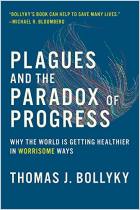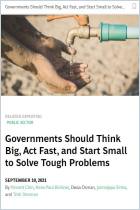
Epidemics and Economics
New and resurgent infectious diseases can have far-reaching economic repercussions
Read or listen offline
Recommendation
The suffering of individuals during outbreaks of viruses such as Ebola and Zika is devastating, but these and other diseases, such as influenza, malaria and tuberculosis, can have lasting and widespread effects on economic growth. In this illuminating article, health care experts David E. Bloom, Daniel Cadarette and JP Sevilla sketch the direct and indirect costs – and their uneven impacts among populations – of epidemics and suggest some straightforward cost-containment ideas. getAbstract recommends this frank overview to health care and human resources professionals.
Take-Aways
About the Authors
David E. Bloom is a professor at Harvard University’s T.H. Chan School of Public Health, where Daniel Cadarette is a research assistant and JP Sevilla is a research associate.



















Comment on this summary or 开始讨论